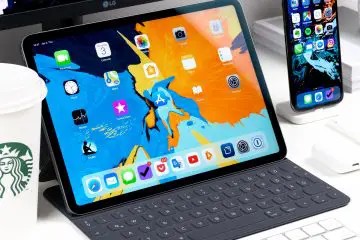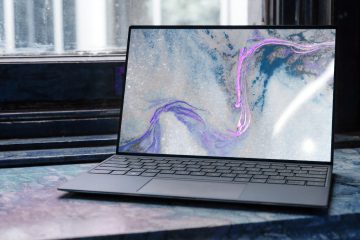Laptops have become an essential tool for office work, especially in today’s digital age where remote work is becoming more common. However, with so many options available, it can be challenging to choose the right laptop for your office needs. In this beginner’s guide, we will explore the key factors that make a laptop suitable for office work and provide you with a step-by-step guide on how to choose the best laptop for your needs.
What Makes a Laptop Good for Office Work?
A laptop that is suitable for office work should have several key features. It should be fast, reliable, and have a long battery life. It should also have a comfortable keyboard and touchpad for extended typing and navigation. The display should be clear and easy on the eyes, and the laptop should be portable and easy to carry around.
How to Choose a Good Office Laptop
When choosing a laptop for office work, there are several factors that you should consider. These include the operating system, screen size, CPU, storage type, and graphics card. Let’s take a closer look at each of these factors.
#1 Select an OS: Windows 11 vs. macOS vs. Chrome OS
The operating system (OS) is one of the most critical factors to consider when choosing a laptop for office work. The three most popular operating systems for laptops are Windows 11, macOS, and Chrome OS. Each of these has its advantages and disadvantages, so it’s essential to choose the one that best suits your needs.
Windows 11 is a versatile operating system that offers a wide range of software and hardware compatibility. It is the most popular operating system in the world and is suitable for almost any type of office work. The latest version of Windows offers a streamlined user interface and many new features that make it easier to work with multiple applications at the same time. Windows 11 also has excellent security features, such as Windows Hello, which allows you to log in to your laptop using facial recognition or a fingerprint reader.
macOS is a stable and reliable operating system that is popular among creatives and professionals. It offers a streamlined user interface and excellent software integration with Apple’s ecosystem. If you are an Apple user and already use an iPhone or iPad, macOS provides a seamless experience across devices. It also has excellent security features, such as Touch ID, which allows you to log in to your laptop using your fingerprint.
Chrome OS is a lightweight and affordable operating system that is suitable for basic office work and web browsing. It is designed for cloud computing and relies heavily on Google’s suite of online productivity tools. Chromebooks are known for their long battery life and fast boot times. They also offer excellent security features, such as automatic updates and built-in virus protection.
#2 Pick the Right Screen Size
The screen size is another important factor to consider when choosing a laptop for office work. A larger screen size can provide a more comfortable viewing experience, but it can also make the laptop less portable. The ideal screen size for office work is typically between 13 and 15 inches. The screen size is very important, especially if you write a lot on your laptop. In fact, you might want to try a laptop for writers if that’s the case.
A larger screen size can make it easier to read and work with multiple applications simultaneously. However, if you travel frequently or need to carry your laptop around with you, a smaller screen size may be more convenient. You should also consider the resolution of the display, as a higher resolution can make text and images appear sharper and clearer.
#3 Know Your CPUs
The central processing unit (CPU) is the brain of the laptop and is responsible for executing instructions and performing calculations. There are two main types of CPUs: Intel and AMD. Intel CPUs are more popular and offer better performance, while AMD CPUs are more affordable and offer better value for money.
Intel CPUs are known for their excellent performance and power efficiency, which makes them suitable for demanding office work such as video editing and 3D modeling. From a performance point of view, i3 CPU laptops are the best for office work. They also offer features such as Intel Turbo Boost, which automatically increases the CPU’s clock speed to provide better performance when needed.
AMD CPUs, on the other hand, offer better value for money and are more suitable for basic office work such as word processing and web browsing. They also offer features such as AMD Ryzen Master, which allows you to overclock your CPU and get better performance out of your laptop.
#4 HDD or SSD
The storage type is another essential factor to consider when choosing a laptop for office work. There are two main types of storage: hard disk drives (HDD) and solid-state drives (SSD).
HDDs are more affordable and offer more storage space than SSDs. However, they are slower and less durable than SSDs, making them more suitable for storing large files such as videos and photos.
SSDs, on the other hand, are faster and more durable than HDDs, making them suitable for storing and accessing data quickly. They are also less prone to failure and can provide a more reliable computing experience. However, they are more expensive and offer less storage space than HDDs.
#5 The GPU
The graphics processing unit (GPU) is responsible for rendering graphics and images on the screen. A dedicated GPU can improve the performance of the laptop and make it suitable for more demanding office work such as video editing and gaming.
Integrated GPUs, which are built into the CPU, are suitable for basic office work such as word processing and web browsing. They are less powerful than dedicated GPUs but consume less power and generate less heat.
Conclusion
Choosing the best laptop for office work can be a daunting task, but by considering the factors we have outlined in this guide, you can make an informed decision that meets your needs and budget. Remember to consider the operating system, screen size, CPU, storage type, and GPU when making your choice. By choosing the right laptop, you can improve your productivity, comfort, and overall computing experience.








